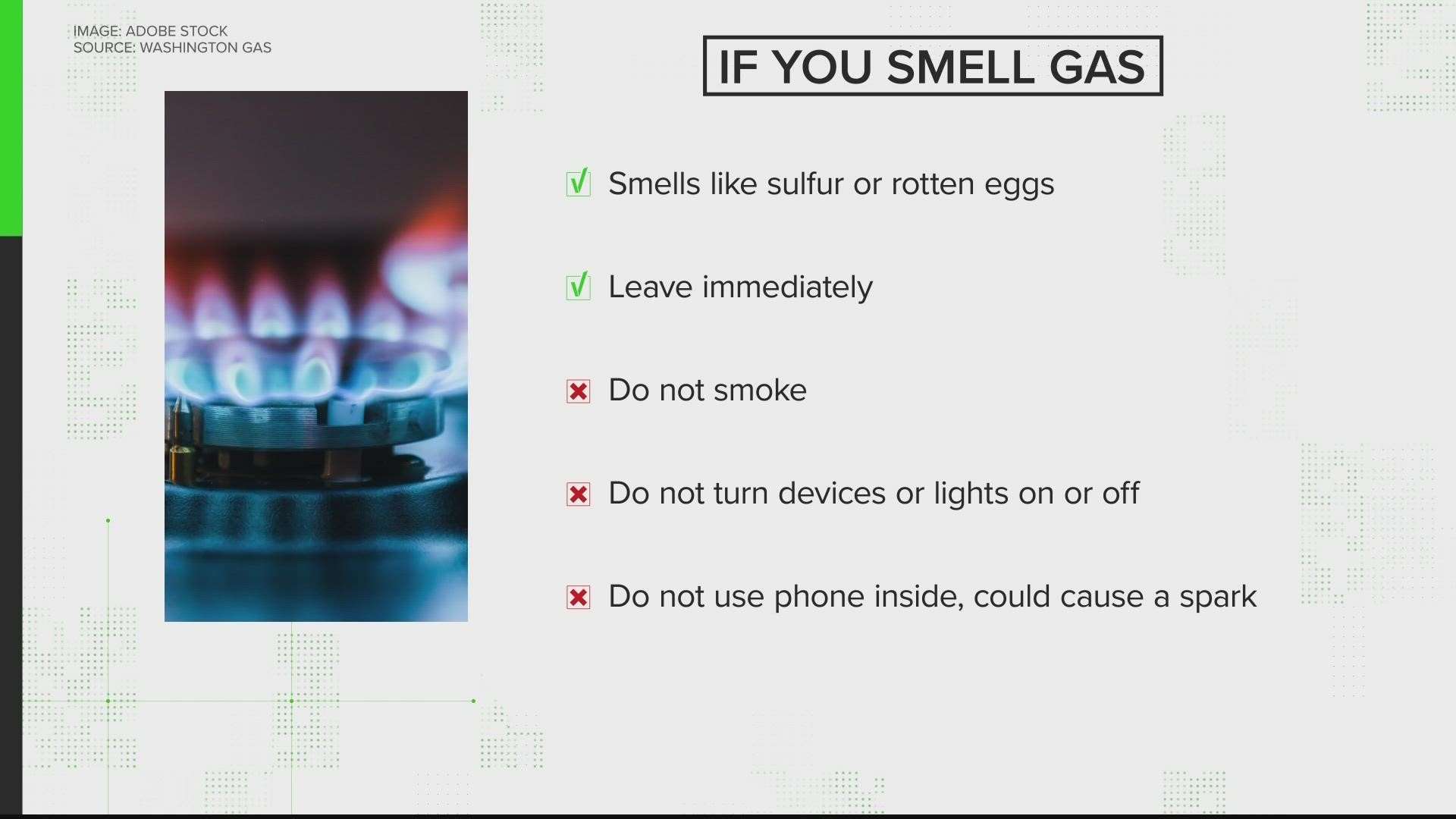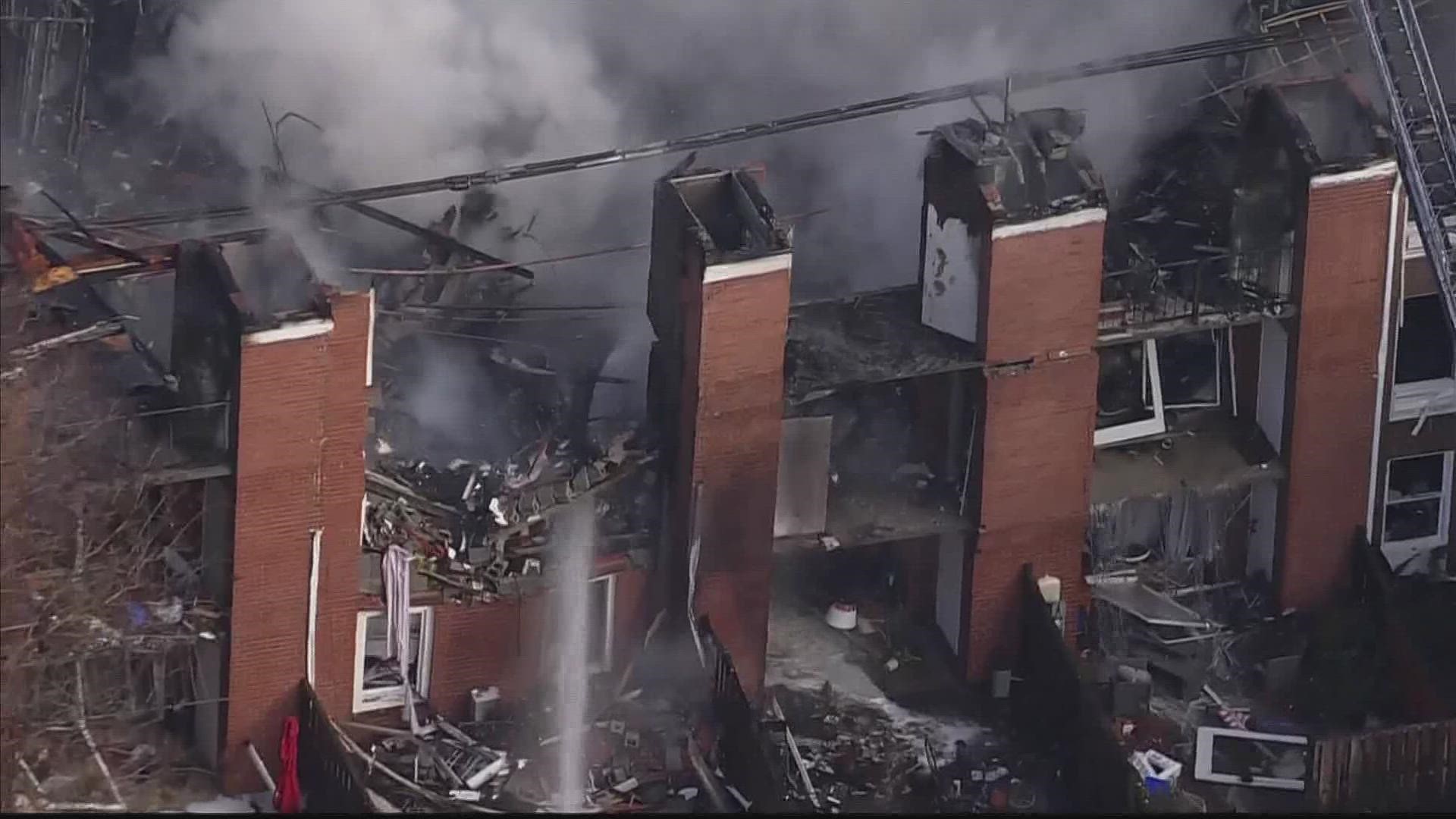GAITHERSBURG, Md. — A gas-fed fire that started in the basement of an apartment complex in Gaithersburg left 12 people injured Wednesday morning, according to Montgomery County Fire Chief Scott Goldstein.
Two hours after the first 911 calls were made reporting a building explosion at th Potomac Oaks Condominiums, Goldstein said his crews were still activelty fighting fire in the building. His team was working closely with Washington Gas to shut off the natural gas to the building affected.
He had a few words of advice for residents on how they could avoid injuries in similar situations.
"Smelling gas is a safety feature designed in the gas," Chief Goldstein said. "When you smell that rotten smell, when you smell that unusual odor, the first action is to call 911."
Washington Gas has several tips for what to do in case you smell natural gas.
- Do not attempt to find the source of the odor.
- Evacuate and immediately call 911 and the Washington Gas Emergency Leak Line at 844-WASHGAS (844-927-4427)
- Leave doors unlocked and do nothing to create an ignition source, such as lighting a match, using a phone or any battery-powered equipment or turning any electrical equipment or light switches on or off.
Signs of Natural Gas to look out for include:
- Are outside and smell gas
- Hear hissing or blowing noises
- See dirt being thrown into the air
- See fire coming from the ground or appearing to burn aboveground
- See water bubbling or being blown into the air at a pond, creek or river
- See a dry spot in a moist field
- See dead or dying vegetation on or near a pipeline right-of-way
Chief Goldstein said that 24 units of apartments have been displaced due to the explosion caused by gas. Twelve people were also injured in the explosion, including two people in critical condition and four children.
The chief said that the fire is a multi-day event as they work to extinguish hot spots and investigate.
According to the United States Public Interest Research Group, an incident involving gas pipelines occurs somewhere in the U.S. approximately every 40 hours.
"From 2010 through nearly the end of 2021, almost 2,600 pipeline incidents related to the release of gas occurred in the United States that were serious enough to be reported to the federal government, 328 of which resulted in explosions," the advocacy group writes on their website. "Those explosions and fires killed 122 people and injured 603."


